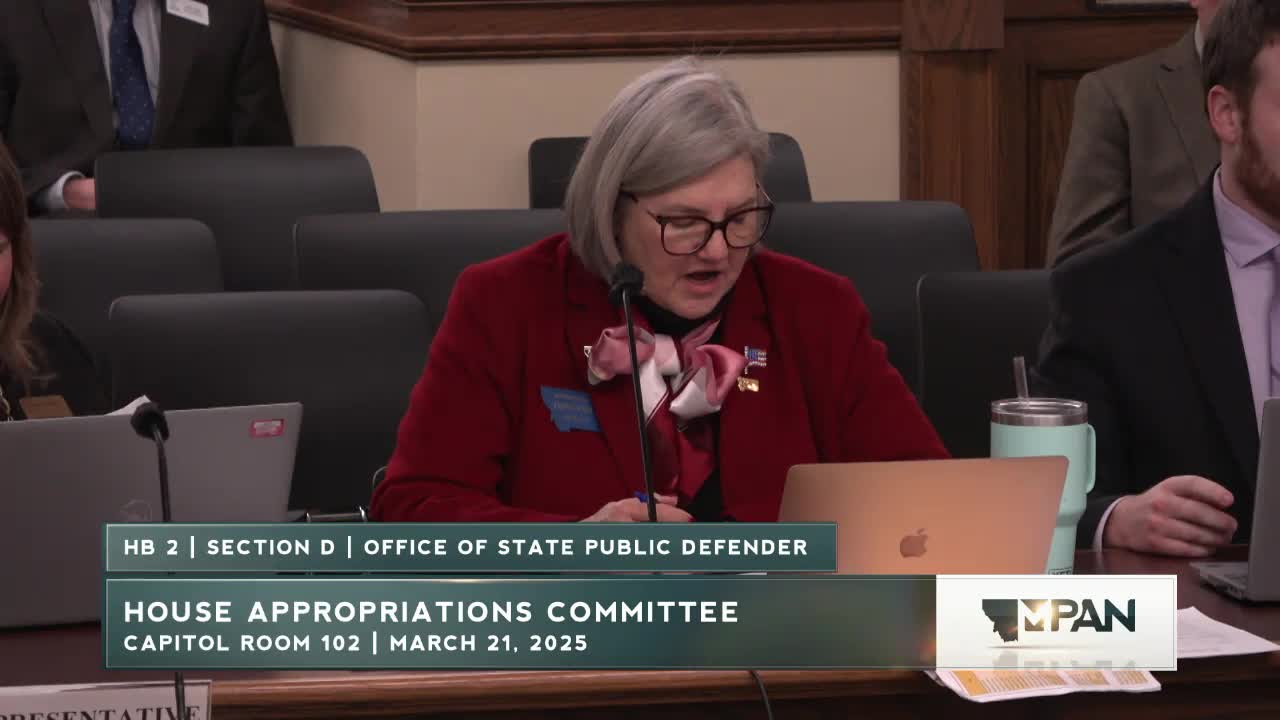Article not found
This article is no longer available. But don't worry—we've gathered other articles that discuss the same topic.
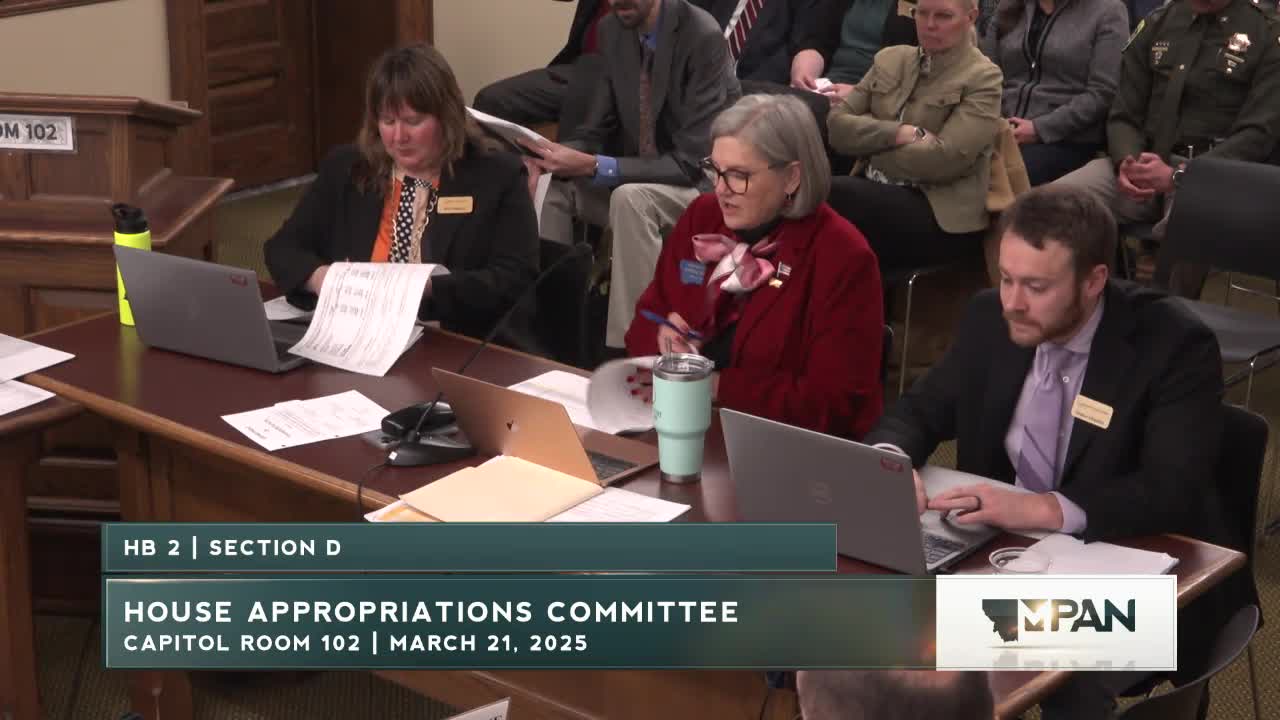
Legislative subcommittee trims PSC staffing; commission urges reinstatement of rail-inspector position
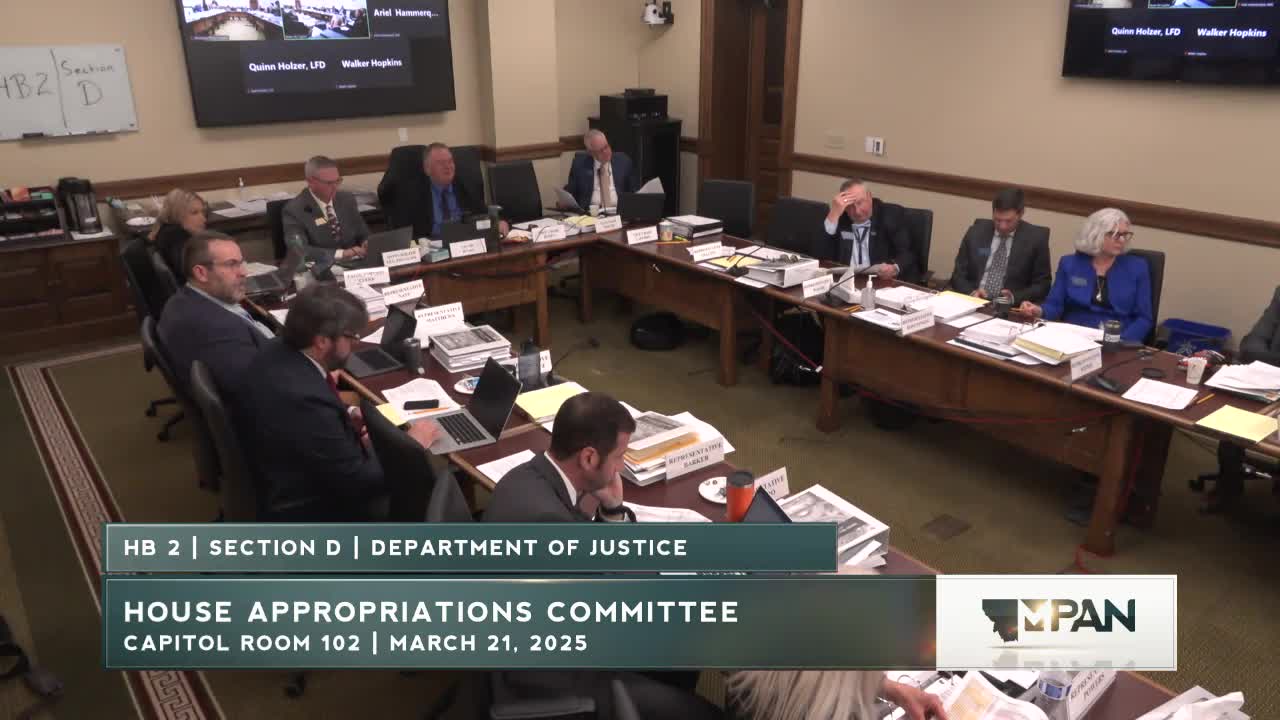
Subcommittee backs trooper pay raise and maintenance authority; DOJ seeks flexibility for academy repairs and radio payoff
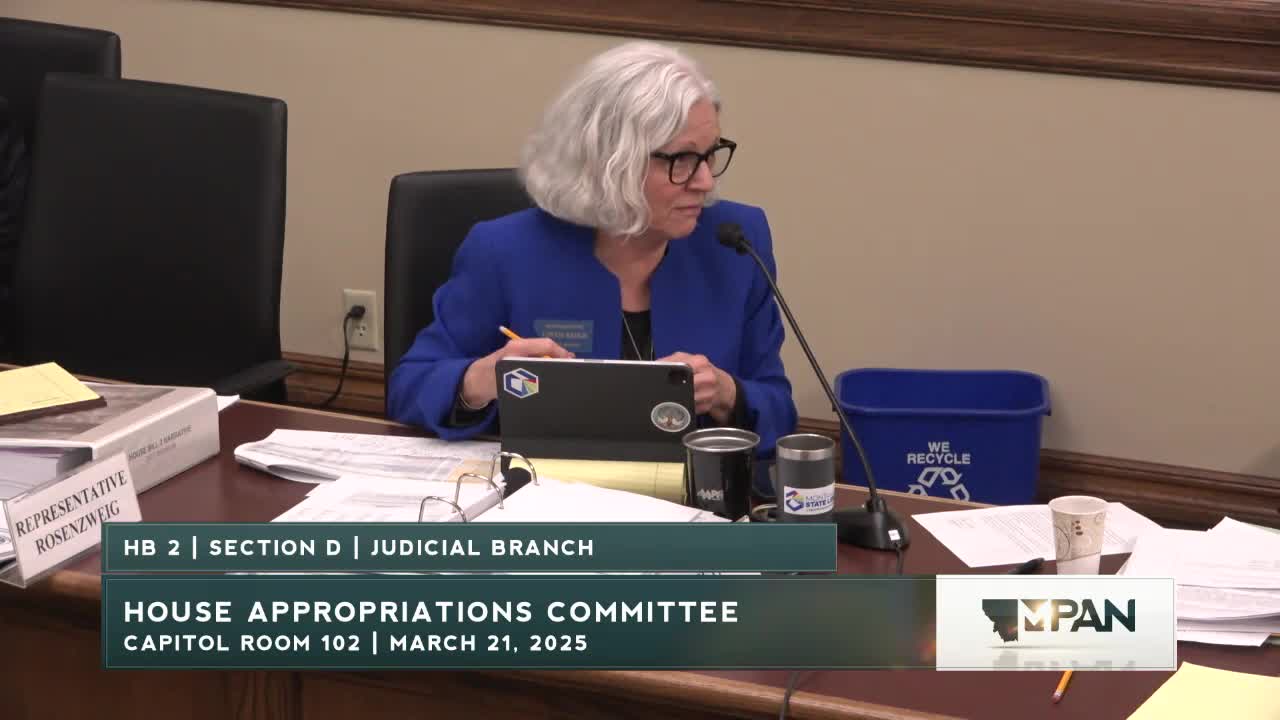
Corrections budget keeps rehab focus; subcommittee grants one k‑9 team, seeks cost data for programs including tattoo removal
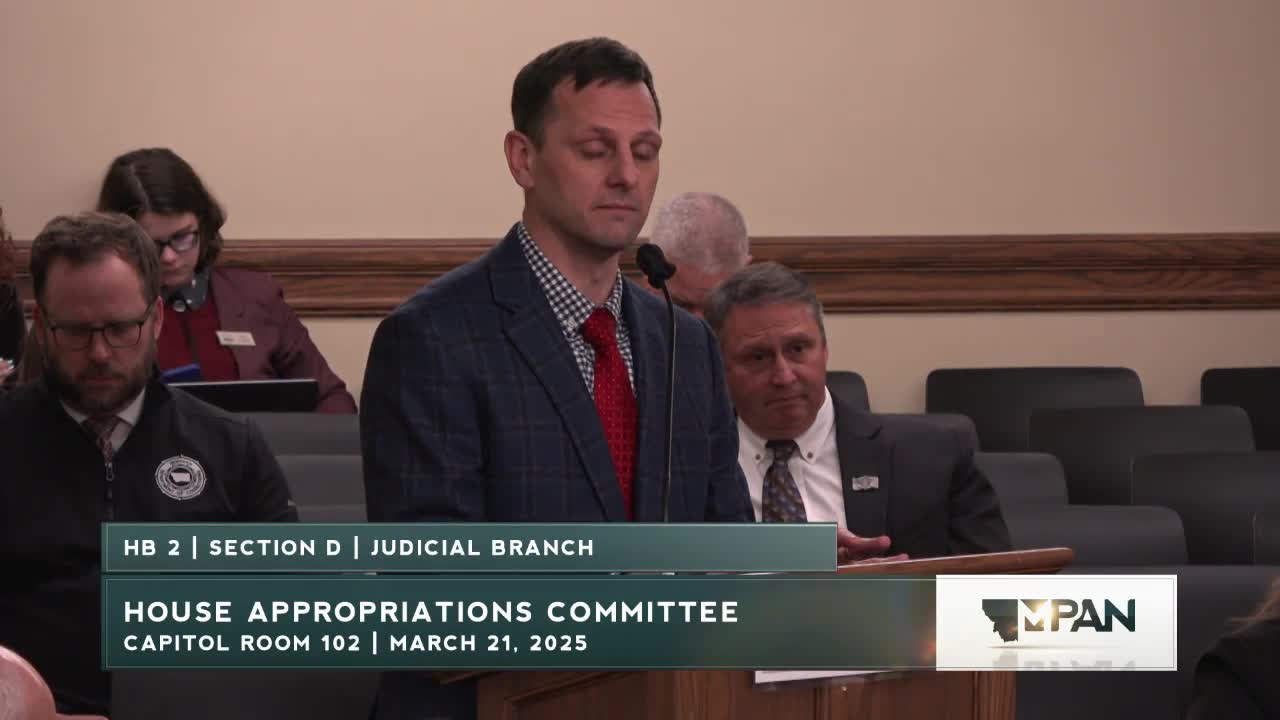
Judiciary seeks permanent pretrial funding and two judges for Yellowstone County; subcommittee approves two judges, not full pretrial package
